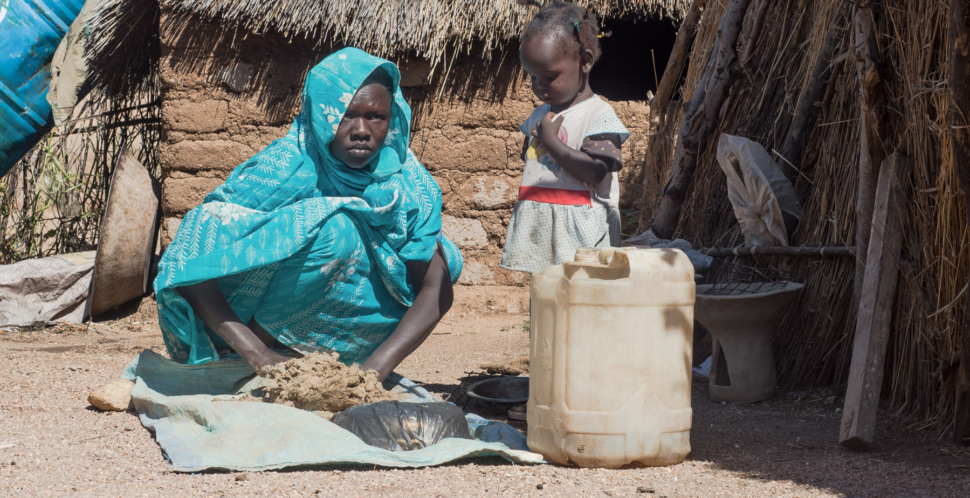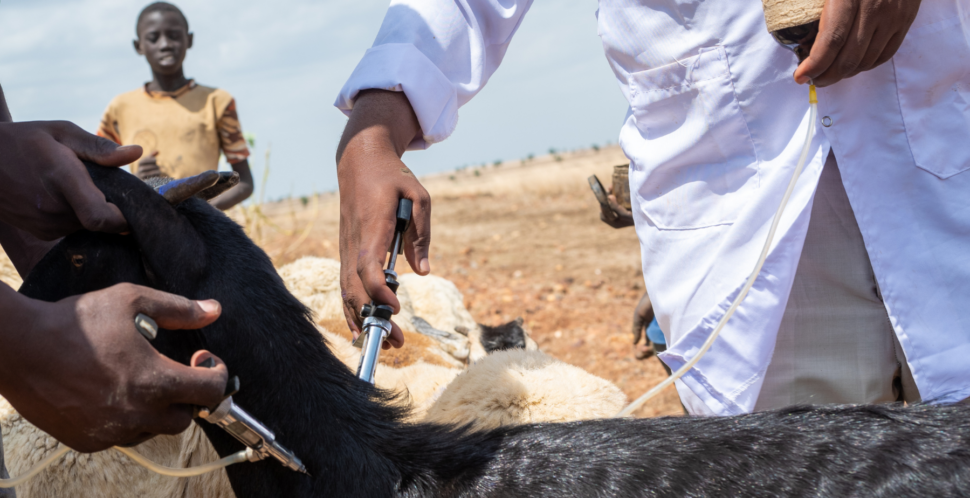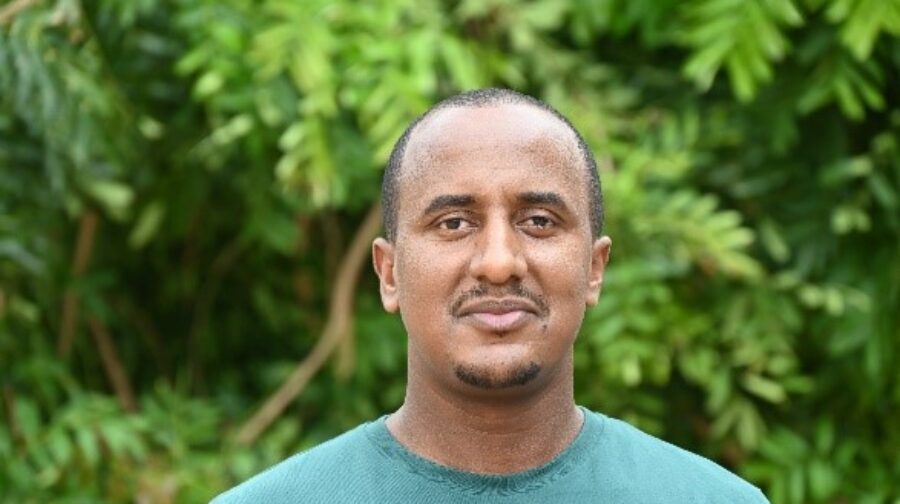Two Years of War in Sudan – Our Work Amid a Humanitarian Catastrophe
On April 15, 2025 the outbreak of armed conflict in Sudan marks its second anniversary. The war has displaced millions of people – including pastoralist communities whose livelihoods are now under acute threat.

© VSF Germany
On April 15, 2025, it will be two years since the outbreak of armed conflict in Sudan. The ongoing clashes between the Sudanese Armed Forces and the paramilitary Rapid Support Forces (RSF) have triggered one of the largest humanitarian crises in the world. According to the U.S. Committee for Refugees and Immigrants (USCRI), 30.4 million people – more than half of Sudan’s population – currently rely on humanitarian aid, including 16 million children.
The number of displaced people is alarming: over 12.7 million individuals have been displaced since April 2023 – 8.6 million internally and around 4 million across borders into neighboring countries. Children bear some of the heaviest burdens of the war: over 53% of those displaced are children who have now faced violence, instability, and displacement for two years.
At the same time, nomadic and semi-nomadic communities – whose entire livelihoods depend on livestock – are particularly vulnerable. In regions such as Darfur and Kordofan, many families have lost their animals and access to traditional grazing areas and water sources. Resource conflicts with sedentary communities are increasing – exacerbated by drought and climate change. The targeted destruction of markets, trade routes, and infrastructure further threatens their survival.
Amid this crisis, we at VSF Germany continue our work – supporting people by safeguarding their animals. Especially in rural areas and among pastoralist communities, we are helping secure families’ livelihoods through vaccination campaigns, veterinary care, and the development of local structures. How such support is possible under extreme conditions is explained by our Country Director in Sudan, Esmael Tessema, in the following interview.
Interview with Esmael Tessema, Country Director Sudan
Last year, you faced the challenge of delivering 2.8 million vaccine doses to Sudan – in the middle of a war. What obstacles did you face, and how did you overcome them?
This was an unprecedented situation for us in Sudan. For more than 50 years, animal vaccines were exclusively produced and distributed by the Central Veterinary Research Laboratory (CVRL), and imports were heavily restricted. But the CVRL is no longer functional due to the war. Vaccine production came to a complete standstill.
That’s why we began organizing imports ourselves in November 2023 – in close coordination with the Sudanese Ministry of Animal Resources and the CVRL. After receiving the necessary permits, we launched a transparent procurement process and ultimately selected the National Veterinary Institute in Ethiopia as our supplier. The vaccines were tested in an accredited reference laboratory, approved by our donor, and delivered by May 2024. They reached the target regions in mid-June.
Despite some delays, it was a major success: VSF Germany became the first international NGO to import over 6.8 million doses of various livestock vaccines through Port Sudan and Chad into Darfur. This model now serves as a blueprint for future vaccine imports.
Which diseases did you vaccinate against – and why was this so important for the people of Sudan?
We imported vaccines against five severe livestock diseases: Peste des Petits Ruminants (PPR), Sheep and Goat Pox, Anthrax, Contagious Bovine Pleuropneumonia (CBPP), and Black Quarter. These diseases are widespread in Sudan and are usually covered by government vaccination programs. But in 2023, these programs were largely suspended due to the war – with dramatic consequences. Outbreaks of Lumpy Skin Disease, Sheep and Goat Pox, Black Quarter, and other infections were reported.
In total, we vaccinated 1,430,235 animals – mainly cattle, sheep, and goats – in White Nile and Blue Nile states. Each animal received two doses. Another vaccination campaign is currently underway in Darfur (over 1.3 million animals) and in Blue Nile and South Kordofan (650,000 animals). These efforts are helping contain outbreaks and strengthen livestock resilience during this critical time.
Since the vaccines arrived last summer – what impact has your work had on the lives of families and their animals in the affected regions?
Our monitoring mission in Blue Nile confirmed that the vaccines reached the target communities – and that they are working. Livestock keepers reported that diseases such as PPR, which occurred in neighboring areas, no longer affected their herds. They also observed that their animals were healthier, eating better, and gaining more weight – particularly among cattle.
Our technical team attributes this to better protection from seasonal illnesses such as pneumonia, which commonly occurs in autumn and winter. For families, this means fewer livestock losses and more stable access to milk and meat.Many communities also expressed their desire for continued vaccination – a clear sign of how much this support is appreciated. The next vaccination campaign is already underway.

© VSF Germany
The rainy season worsens conditions every year. How did it affect your work in 2024?
The rainy season – from mid-June to mid-September – was once again a major challenge. Many roads became impassable, and some villages were cut off for days. Still, we managed to reach all planned regions. This was only possible through flexible and creative planning. We scheduled our missions after the heaviest rains, used alternative routes, deployed tractors and off-road vehicles – and even boats to reach villages along the Dam Lake in Blue Nile.
Since summer 2023, you’ve had to relocate your office twice. How did that affect your team – and how are you coping with it?
The war in Khartoum hit our team hard. Many colleagues had to flee with their families – to Northern, River Nile, North Kordofan, Gezira, and West Darfur. Some traveled for up to ten days on dangerous roads. By August 2023, we were able to regroup in Damazine, Blue Nile state. Some staff stayed at the VSF Germany compound, others rented housing. The cultural diversity of the region helped with the adjustment – but living far from home remains a heavy burden for everyone.
In June 2024, the situation worsened again: when Gezira and Sennar states came under RSF control, access to Blue Nile became nearly impossible. We therefore relocated to Port Sudan. There, we are safe again, have access to banks and telecommunications – and can continue our work despite the challenges.
What does the future of VSF Germany’s work in Sudan look like?
Sudan is facing an unprecedented crisis. One third of the population is displaced, and over half suffers from hunger – with acute famine in parts of North and South Darfur and South Kordofan.
More than 70% of the rural population depends on farming and livestock. But the war is destroying their livelihoods: roads, markets, telecommunications, and banks are often no longer functional. Veterinary services are largely inaccessible, and uncontrolled animal movements increase the risk of disease outbreaks. At the same time, illnesses like cholera, malaria, dengue, measles, and rabies are spreading – placing enormous strain on public health systems.
To address these issues, integrated approaches are needed. We focus on programs that combine humanitarian aid, development, and peacebuilding – and on the One Health approach, which considers human, animal, and environmental health together. Only through this can we secure food systems, combat disease, and strengthen community resilience in Sudan in the long term.
Esmael Tessema: Country Director Sudan, based in Addis Ababa. Until April 15, 2023, Esmael was based in Khartoum and regularly visits projects in Sudan.
As a veterinarian specialized in development studies and rural development, Esmael Tessema brings valuable expertise in building livelihoods and strengthening long-term resilience and sustainable development. He has been part of VSF Germany since 2012.

© VSF Germany